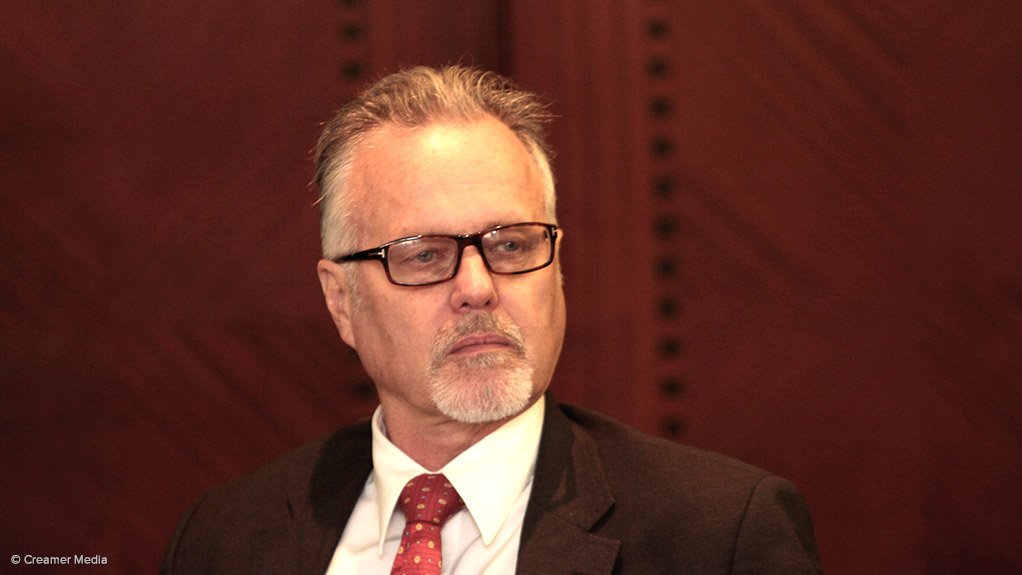Parliament’s Portfolio Committee on Public Enterprises has kicked off its inquiry into alleged State capture with a report revealing “overwhelming evidence of grand corruption”, governance failure and a stream of irregularities at Eskom, South Africa’s largest State-owned entity.
Research professor Anton Eberhard presented research from the Eskom Inquiry Reference Book he compiled with Catrina Godinho at the University of Cape Town’s Graduate School of Business.
Eberhard told Members of Parliament it was clear how the “Guptas had elbowed their way” into Eskom’s lucrative coal contracts. The purchasing of coal makes up a major slice of Eskom’s overall operating expenditure, which totals around R140-billion a year.
“It is here that the most blatant acts of corruption appear to have been perpetrated – through the awarding of overpriced coal contracts, the squeezing out of incumbent coal majors, and the questionable acquisition of coal mines by the Gupta family, financed by Eskom.
“Average coal costs are now close to R400 a ton, up from R190 a ton in 2011,” the reference book records.
This has had a crushing effect on the economy and on all South Africans.
Eberhard said burgeoning costs of coal power, “arguably propelled by rent-seeking and corruption”, had led to electricity tariffs increasing by more than 400% over the past decade, while electricity services had deteriorated.
He said critical checks and balances had been undermined so that money could be funnelled out of South Africa.
“Institutions such as [the South African Revenue Service], the National Prosecuting Authority, the Hawks, the Special Investigating Unit and, more recently, the Public Protector and the Office of the Chief Procurement Officer, have all been affected – starved of resources and led astray by new politically appointed leadership.”
Eberhard said South Africans were starting to ‘join the dots’. “More and more information is coming to light that seems to corroborate claims that a coordinated political project of State capture has been under way, whereby governance structures have been systematically repurposed to serve corrupt interests.”
Eberhard told the committee that the greatest greed would not have been possible without breaking government rules and codes with the tacit approval of the Minister of Public Enterprises and all Eskom board members.
“Corrupt deals depend on silence and tacit approval. People were put in positions to make this happen,” he said.
Eberhard added that former Eskom CEO Brian Dames, whose contract as CEO was terminated, had been “treated appallingly” by Malusi Gigaba when he was Public Enterprises Minister.
The report also outlines how an experienced Eskom board was gutted and replaced by largely unknown names when Lynne Brown first became Public Enterprises Minister.
Under Brown’s watch, there had been three different board chairpersons and six different CEOs at Eskom.
“Both Ministers should be asked to explain their association with the Guptas. The committee should also ask Minister Brown to explain radical changes at a critical period when Eskom was battling with load-shedding and survival.”
Eberhard said Brown had also categorically denied in Parliament that Eskom had conducted any business with Gupta-linked company Trillian Capital for consulting work, yet it had come to light that Eskom had paid R600-million to Trillian for consulting.
He said it was hard to keep up with the extent of alleged corruption.
“We have substantive evidence around tenders that went wrong, where technical and commercial staff at Eskom have said ‘this is the best commercial and technical solution’, but then saw people in management and leadership positions on the board, and even interference by Ministers, turning that around, and favouring a particular outcome.
“There are many, many good men and women working at Eskom, who are extremely good professionals, and are distraught at what is happening at a higher level.”
Eberhard said he hoped the inquiry would lead Parliament to make recommendations to prosecute culpable individuals, reform governance and restructure South Africa’s electricity sector so that grand corruption was less possible in the future.
“The inquiry is a unique opportunity to force implicated individuals to answer under oath, and publicly, to widely publicised incidents of administrative and financial malfeasance and blatant corruption.”
EMAIL THIS ARTICLE SAVE THIS ARTICLE ARTICLE ENQUIRY FEEDBACK
To subscribe email subscriptions@creamermedia.co.za or click here
To advertise email advertising@creamermedia.co.za or click here











